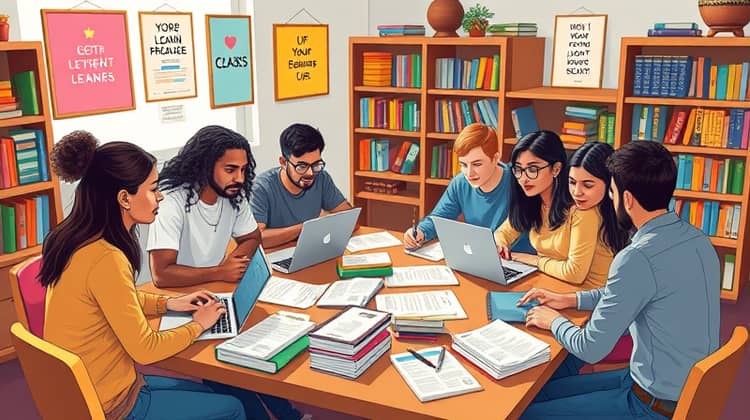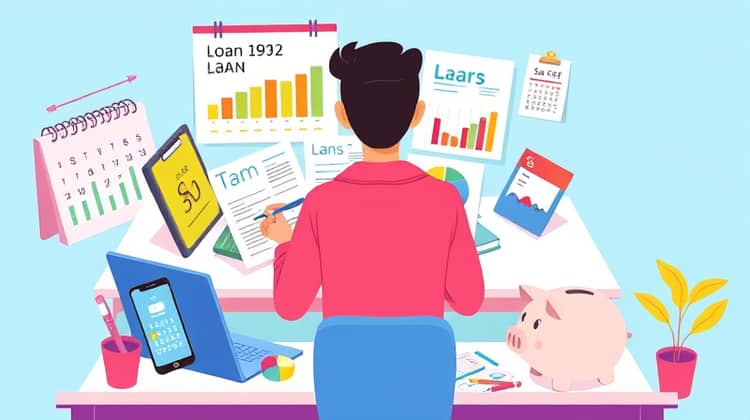Education is an essential investment for personal and professional growth, but the costs associated with pursuing higher education can be staggering. Many students and adult learners find themselves in a position where traditional financing options, such as federal student loans, cannot fully cover their expenses. For these individuals, personal loans can provide a practical financial solution to bridge the gap and ensure that they can pursue their educational goals without undue financial strain.
Personal loans offer a flexible funding option that can be used for a variety of education-related costs, making them a popular choice among students. Unlike federal education loans, which come with specific guidelines and restrictions, personal loans can be used to cover tuition, textbooks, living expenses, and other necessary educational expenses. However, it's important to understand the responsibilities and implications of taking out a personal loan for education before you proceed.
In this article, we will explore why personal loans can be beneficial for educational expenses, the types of expenses they can cover, how to apply for one, the advantages and drawbacks of using them, and tips for managing your repayment effectively. By the end, you will have a comprehensive understanding of how personal loans can fit into your educational funding strategy.
Why Personal Loans?

When it comes to funding your education, many individuals might instinctively look towards student loans and scholarships. However, these options may not always suffice, leading to the necessity for additional financial assistance. Personal loans present a viable alternative that can help bridge the financial gap for those seeking further education, whether it be for college, university, trade school, or other learning institutions.
One of the primary reasons to consider personal loans for education expenses is their flexibility. Unlike other types of loans that are earmarked for particular purposes, personal loans can be used to cover a broad range of educational costs. This can include not only tuition but also rent, transportation, and even supplies or course materials that may be necessary to successfully complete the program.
Moreover, personal loans typically have a faster approval process compared to traditional student loans, which can take weeks or even months to process. This quick access to funds can be critical for students who need immediate assistance to secure their education and manage their living expenses while studying.
Types of Education Expenses Covered

Personal loans can help cover various education-related expenses, allowing students to focus on their studies. Key areas where personal loans can come in handy include tuition, but they can extend far beyond that. Many students find that their educational expenses also include housing costs, textbooks, equipment, and technology necessary for their courses, all of which can add up significantly over time.
In addition to direct educational costs, personal loans can also cover living expenses incurred while attending school. Students often need to account for daily living costs like food, transportation, and utilities, especially if they are living away from home. Ensuring that these expenses are taken care of can alleviate financial stress and contribute to a more successful educational experience.
- Tuition Fees
- Textbooks and Supplies
- Living Expenses
- Equipment and Technology
How to Apply for a Personal Loan for Education

Applying for a personal loan specifically for educational purposes is similar to applying for a personal loan for any other reason. Students should do their research to find lenders that offer personal loans suitable for education expenses.
- Determine how much you need to borrow.
- Research lenders and compare interest rates and terms.
- Check your credit score and improve it if necessary.
- Gather required documentation such as proof of income or enrollment.
- Submit your loan application and await approval.
Benefits of Using Personal Loans for Education

Taking out a personal loan to cover education expenses can have several benefits that enhance a student's ability to succeed academically. For one, personal loans often come with competitive interest rates compared to credit cards, helping to keep the overall cost of borrowing lower.
Additionally, personal loans can provide a sense of autonomy. Borrowers can choose how much to borrow based on their individual needs, unlike federal loans that have set amounts based on eligibility.
- Flexible funding options
- Competitive interest rates
- Borrower's choice in amount and repayment terms
Drawbacks to Consider

While personal loans offer advantages, there are also drawbacks to consider. The most significant consideration is the obligation to repay the loan with interest, which can lead to a heavy financial burden if not managed properly. Furthermore, missing payments can negatively impact your credit score, making future borrowing more expensive or difficult.
Another concern is that the terms of personal loans can vary widely, and without proper diligence, borrowers may end up with unfavorable terms. Also, personal loans typically do not offer the same level of deferment options that federal student loans do, which might be an issue for some borrowers.
- Higher interest rates than federal loans
- Potentially strict repayment terms
- Impact on credit score if not managed properly
Tips for Managing Your Loan

Managing a personal loan requires disciplined financial planning and organization. Borrowers should keep track of their loan balance, available payment options, and due dates to ensure that they maintain a good standing without falling behind on payments.
- Create a budget that includes loan payments
- Consider making extra payments to reduce interest
- Set reminders for payment due dates
- Explore options for refinancing if rates drop
Conclusion

In conclusion, personal loans can serve as an invaluable resource for those pursuing educational opportunities when conventional funding methods are insubstantial. By understanding the diverse costs that can be covered, the application process, and the benefits and drawbacks associated with personal loans, borrowers can make informed decisions about their financial futures.
It is vital to approach personal loans with a comprehensive understanding of one’s financial situation and repayment plan, ensuring that the loans taken are manageable and fitting to one's circumstances. With proper planning and management, personal loans can provide the necessary support to achieve educational and career aspirations.
Remember, investing in education is ultimately investing in your future. The right financial tools can help you unlock the doors of opportunity and success.














